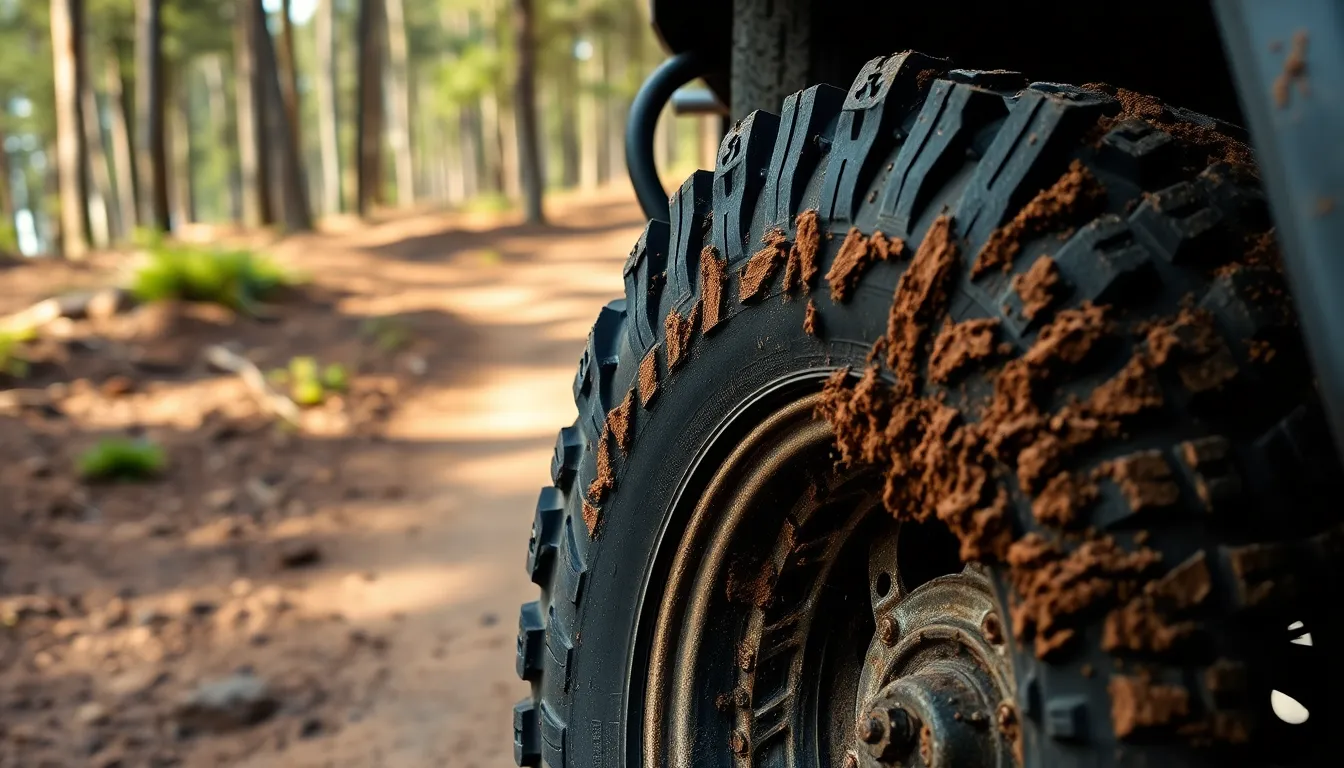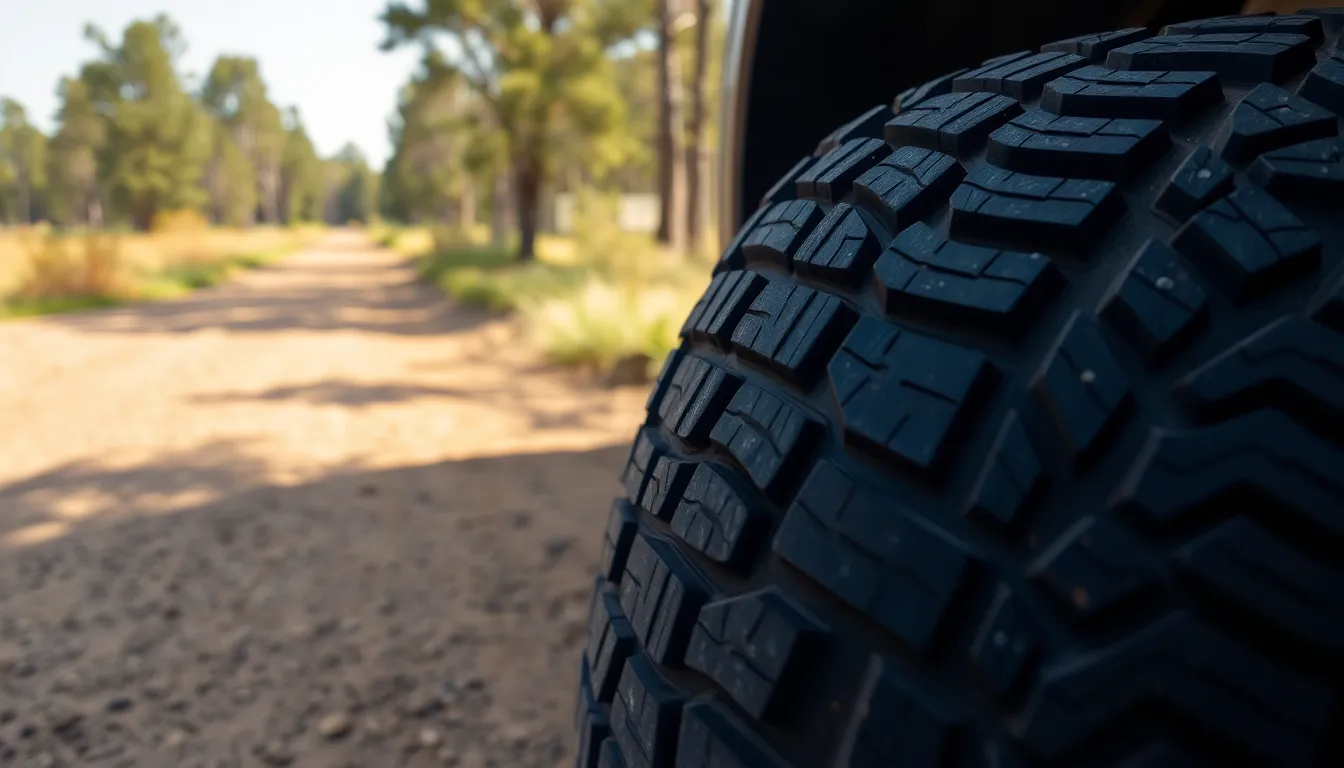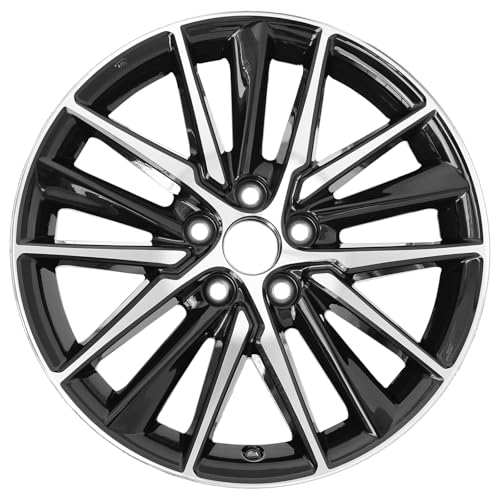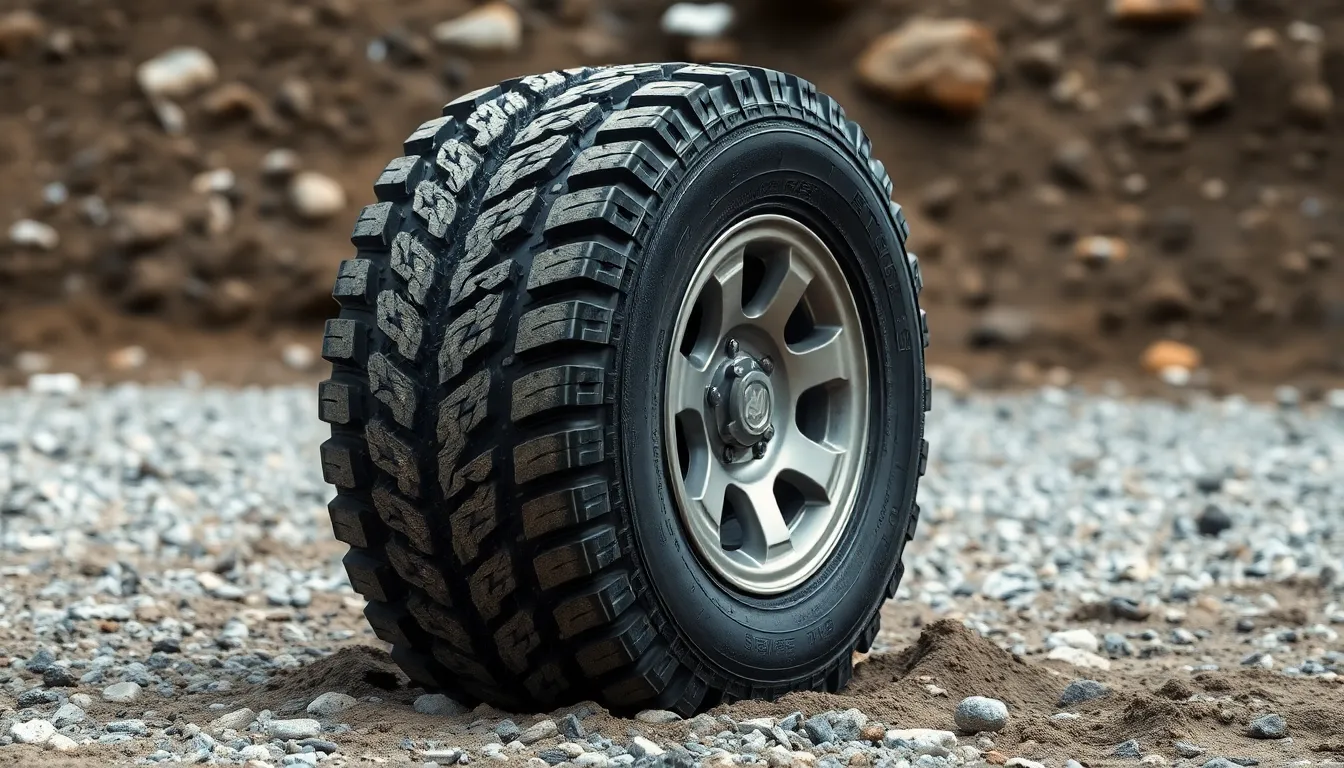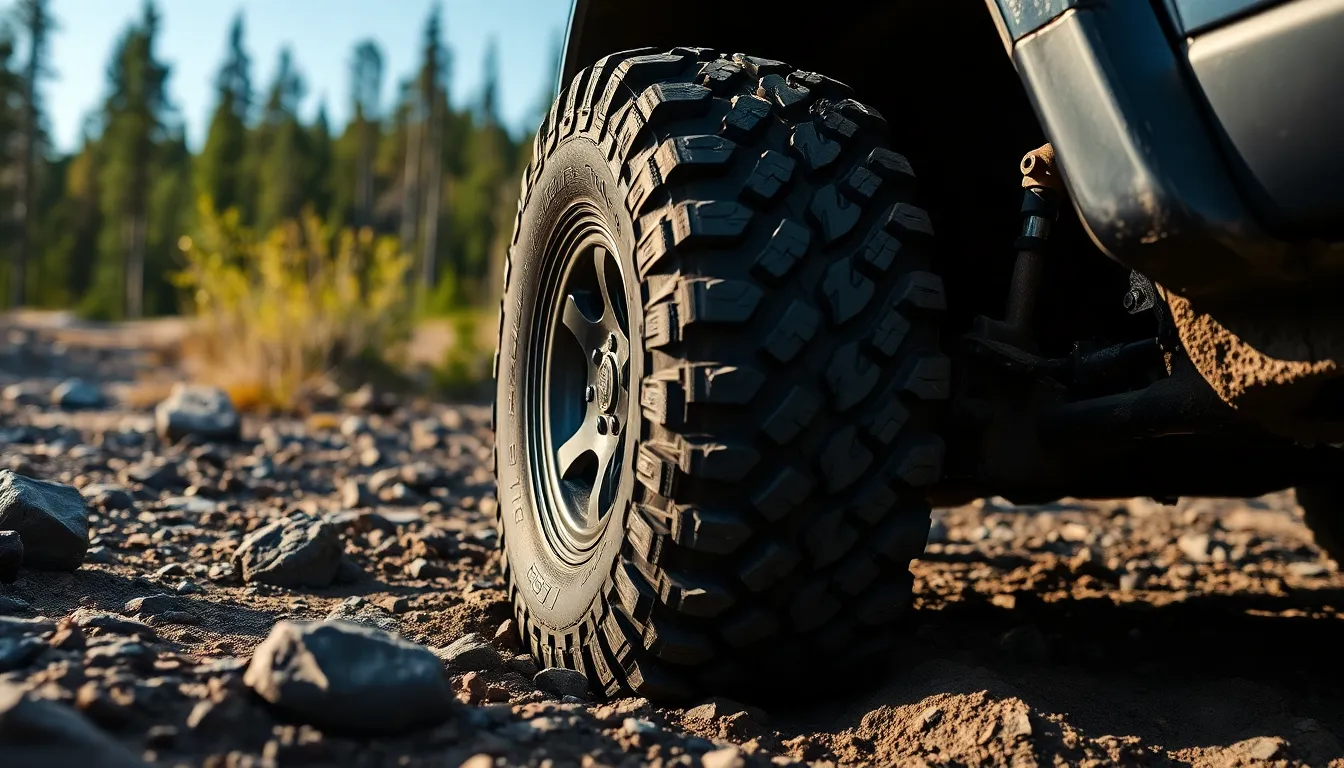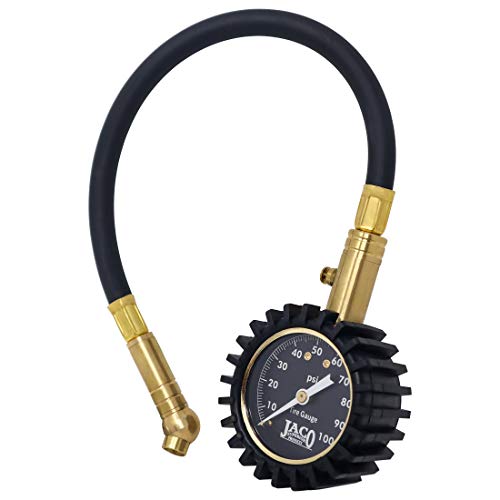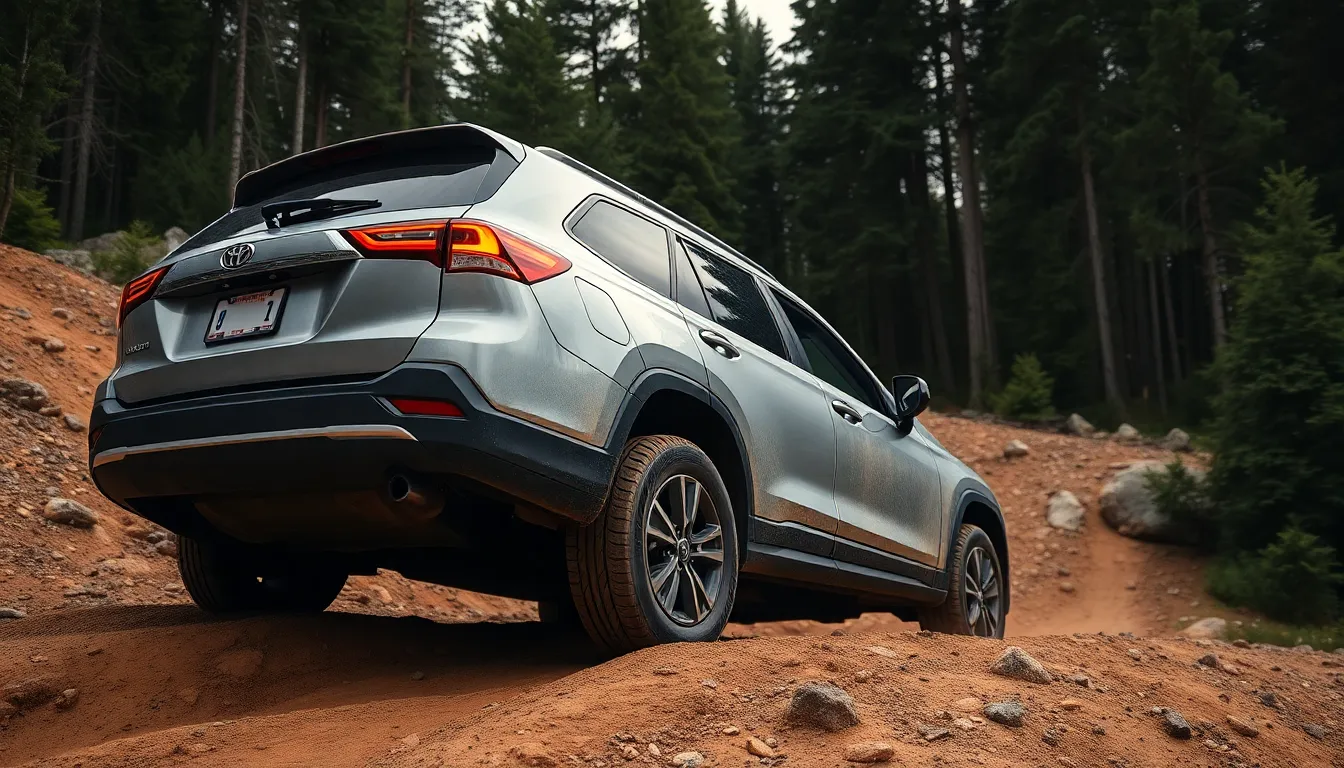We’ve all been there – standing in the tire shop wondering if those rugged all-terrain tires will turn our fuel-efficient vehicle into a gas-guzzling monster. It’s a valid concern that countless drivers face when considering the switch from standard highway tires to more aggressive treads.
The short answer? Yes, all-terrain tires typically do reduce your vehicle’s fuel economy. But before you write them off completely, there’s more to this story than meets the eye. The impact on your MPG isn’t as dramatic as some might fear, and the trade-offs often justify the slight decrease in efficiency.
We’ll break down exactly how much fuel economy you can expect to lose, why it happens, and whether the benefits of all-terrain tires outweigh the costs at the pump. Understanding these factors will help you make an well-informed choice that aligns with your driving needs and budget.
What Are All Terrain Tires
All terrain tires combine features from highway tires and mud terrain tires to deliver versatile performance across multiple driving surfaces. These tires feature deeper tread patterns than standard highway tires, typically measuring 12/32 to 15/32 inches compared to highway tires’ 8/32 to 10/32 inches. The tread design includes larger tread blocks with wider spacing between them, creating enhanced traction on loose surfaces like gravel, dirt, and light mud.
Key characteristics of all terrain tires include:
- Reinforced sidewalls that resist punctures from rocks and debris
- Aggressive tread patterns with alternating block designs
- Compound rubber formulations optimized for temperature variations
- Load ratings suitable for trucks, SUVs, and crossover vehicles
- Speed ratings typically ranging from S (112 mph) to T (118 mph)
All terrain tires use specialized rubber compounds that remain flexible in cold weather while maintaining durability in hot conditions. The sidewall construction features multiple steel belts and polyester plies that provide structural integrity when driving over rough terrain. These design elements contribute to increased rolling resistance compared to highway tires.
Manufacturing processes for all terrain tires involve computer-designed tread patterns that balance on-road comfort with off-road capability. The tire industry produces these tires with deeper void ratios, meaning more space exists between tread elements to expel mud, sand, and water effectively. This void ratio typically measures 25% to 35% compared to highway tires’ 15% to 20%.
We find that all terrain tires serve drivers who frequently encounter varied road conditions, from city streets to camping trails. The versatility comes with trade-offs in fuel efficiency, as the aggressive tread patterns and increased weight create additional friction and resistance during highway driving.
How All Terrain Tires Affect Fuel Economy
All terrain tires reduce fuel economy by approximately 3% compared to standard highway tires. This decrease stems from three primary factors that affect how efficiently your vehicle consumes fuel.
Rolling Resistance and MPG Impact
Rolling resistance increases significantly when you switch to all terrain tires. The heavier construction and aggressive tread patterns force your engine to work harder while driving. This additional effort translates directly into higher fuel consumption across all driving conditions.
Modern all terrain tire designs attempt to minimize this impact through advanced engineering. Manufacturers now balance traction capabilities with reduced rolling resistance to achieve better efficiency. But, the fundamental physics remain unchanged – more aggressive treads create more resistance against the road surface.
Weight Differences Compared to Standard Tires
All terrain tires weigh considerably more than their highway counterparts. This additional weight requires more energy to accelerate and maintain speed. Your vehicle’s engine compensates by consuming extra fuel during both city and highway driving.
Heavier tires also increase the rotational mass your engine must overcome. Each revolution demands more power than standard tires require. The cumulative effect across thousands of revolutions per mile creates measurable fuel economy reductions.
Tread Pattern Effects on Efficiency
Tread patterns play the most important role in determining fuel efficiency. Aggressive patterns with deep lugs and wide spacing provide excellent off road traction but create substantial rolling resistance. Shallower treads with aerodynamic designs reduce this resistance while maintaining adequate performance.
Exact models like the Nexen Roadian AT Pro RA8 and Continental TerrainContact A/T demonstrate how thoughtful design improves fuel efficiency. These tires incorporate features that maintain off road capability without sacrificing excessive MPG. The key lies in optimizing tread depth, spacing, and overall pattern geometry to balance competing demands.
Factors That Influence MPG Loss with All Terrain Tires
Understanding the exact elements that contribute to reduced fuel efficiency helps us make informed decisions about tire selection. These factors work together to create the measurable 3% average decrease in fuel economy compared to highway tires.
Tire Size and Width
All terrain tires typically feature larger dimensions and increased width compared to standard highway tires. Wider contact patches create more surface area touching the road, directly increasing rolling resistance. Our vehicles’ engines must generate additional power to overcome this resistance, consuming more fuel during acceleration and maintaining highway speeds. Heavier construction materials used in all terrain tire manufacturing add weight that compounds the efficiency loss.
Driving Conditions and Terrain
Highway driving reveals the most important fuel economy penalties when using all terrain tires. Aggressive tread patterns designed for gravel, mud and snow create substantial rolling resistance on smooth pavement surfaces. Off road conditions where these tires excel actually minimize the MPG difference since highway tires perform poorly on rough terrain. Speed amplifies the fuel consumption gap, with highway speeds of 55+ mph showing more pronounced efficiency losses due to increased air resistance working against the already elevated rolling resistance.
Vehicle Type and Weight
Trucks and SUVs equipped with four wheel drive systems experience different fuel impacts compared to lighter passenger vehicles. These heavier platforms already consume more fuel, making the percentage decrease from all terrain tires less noticeable in daily driving. Four wheel drive operation during off road adventures benefits significantly from enhanced traction, offsetting fuel economy concerns through improved capability. Lighter vehicles show more dramatic percentage losses when switching to all terrain tires since the weight and resistance increases represent larger proportional changes to their overall efficiency profile.
Real-World MPG Testing Results
Studies and consumer reports consistently demonstrate that all-terrain tires reduce fuel efficiency compared to highway tires. Research shows an average MPG reduction of 3%, though aggressive all-terrain models can decrease fuel economy by 1-2 MPG depending on driving habits and exact tire designs.
Highway Driving Performance
Highway conditions reveal the most important fuel economy penalties with all-terrain tires. The increased rolling resistance and weight force engines to work harder, consuming more fuel than smooth highway tires would require. Testing confirms that tires contribute 20-35% of MPG penalty at highway speeds, with all-terrain designs creating substantial friction against pavement through their aggressive tread patterns. Modern tire engineering has made improvements to reduce rolling resistance, but all-terrain options still underperform compared to specialized highway tires on open roads.
City Driving Impact
Urban driving amplifies the fuel economy losses associated with all-terrain tires. Frequent acceleration and braking cycles demand more energy to move the heavier tire construction, creating noticeable MPG reductions compared to lighter street tires. Testing data indicates tires account for 15-25% of fuel economy penalties at low speeds, where the added weight and rolling resistance of all-terrain designs become particularly costly. Stop-and-go traffic patterns compound these effects, as engines must repeatedly overcome the increased inertia of heavier all-terrain tires.
Mixed Driving Conditions
Combined city and highway driving consistently yields lower fuel economy with all-terrain tires across all test scenarios. The cumulative impact of increased weight, aggressive tread design, and higher rolling resistance reduces overall MPG regardless of terrain type. Some contemporary all-terrain tire models incorporate engineering improvements to minimize efficiency losses, but they continue falling short of standard highway tire performance. Data confirms that all-terrain tires remain most suitable for drivers who regularly traverse off-road conditions or require enhanced traction rather than those prioritizing maximum fuel economy.
Ways to Minimize Fuel Economy Loss
We can reduce the fuel economy impact of all-terrain tires through strategic maintenance practices and smart choices. These approaches help offset the natural efficiency penalties while maintaining the benefits of enhanced traction and durability.
Proper Tire Pressure Maintenance
Maintaining correct tire pressure represents the most effective method for minimizing fuel economy loss with all-terrain tires. Under-inflated tires increase rolling resistance significantly, compounding the existing efficiency penalties from aggressive tread patterns. We recommend checking tire pressure monthly using a reliable gauge, as even a 5 PSI drop below manufacturer specifications can reduce fuel efficiency by an additional 2-3%.
Temperature changes affect tire pressure substantially, with cold weather reducing pressure by approximately 1-2 PSI for every 10-degree temperature drop. Proper inflation ensures optimal contact between the tire and road surface, reducing the energy required to overcome rolling resistance. Modern tire pressure monitoring systems provide alerts when pressure drops below safe levels, though manual verification remains essential for maintaining peak efficiency.
Choosing the Right All Terrain Tire
Selecting all-terrain tires with less aggressive tread patterns and lower rolling resistance designs balances traction capabilities with fuel efficiency concerns. Modern tire manufacturers engineer models specifically designed to minimize the traditional fuel economy penalties associated with all-terrain construction. These optimized designs typically feature computer-designed tread patterns that reduce rolling resistance while maintaining off-road capabilities.
Tire models focused on highway comfort with moderate off-road capability often provide better fuel economy than aggressive mud-terrain oriented designs. Width and size selection also impacts efficiency, as narrower tires with appropriate load ratings typically offer better fuel economy than oversized alternatives. Weight considerations matter significantly, with lighter construction materials and designs reducing the energy required for acceleration and maintaining speed.
Driving Habits That Help
Smooth acceleration and maintaining steady speeds minimize the fuel economy impact of all-terrain tires’ increased rolling resistance. Aggressive driving behaviors amplify efficiency losses, as rapid acceleration requires overcoming both the tire’s rolling resistance and vehicle inertia simultaneously. We find that gradual acceleration techniques and anticipating traffic flow reduces the engine workload required to compensate for all-terrain tire characteristics.
Avoiding excessive idling preserves fuel efficiency regardless of tire type, though this practice becomes more critical with higher rolling resistance tires. Highway driving at consistent speeds between 45-55 mph typically provides optimal fuel economy with all-terrain tires, as higher speeds exponentially increase rolling resistance penalties. Reducing unnecessary weight in the vehicle further improves efficiency, as all-terrain tires already add 5-10 pounds per tire compared to standard highway alternatives.
Cost vs Benefit Analysis
All-terrain tires create a measurable financial impact through reduced fuel efficiency. The typical driver covering 15,000 miles annually with a vehicle achieving 20 mpg pays an additional $67.50 per year in fuel costs when gasoline costs $3 per gallon. This represents the direct monetary consequence of the 3% average mpg reduction that all-terrain tires produce compared to highway tires.
Annual Cost Breakdown by Vehicle Type
| Vehicle Type | Average MPG | Additional Annual Fuel Cost |
|---|---|---|
| Compact Car | 28 mpg | $48.21 |
| Mid-size SUV | 20 mpg | $67.50 |
| Full-size Truck | 16 mpg | $84.38 |
The benefits justify this moderate cost increase for many drivers. All-terrain tires deliver enhanced traction across diverse surfaces including gravel roads, light snow and wet pavement. Construction features like reinforced sidewalls provide superior durability compared to standard highway tires, potentially extending replacement intervals.
Performance advantages become particularly valuable during adverse weather conditions. Drivers experience improved confidence and safety when handling unpaved surfaces, construction zones and seasonal weather challenges. The aggressive tread patterns that reduce fuel efficiency simultaneously provide the grip necessary for these demanding conditions.
Long-term value considerations favor all-terrain tires for exact driving profiles. Vehicles frequently operating on mixed terrain benefit from reduced tire wear compared to highway tires used beyond their intended conditions. The enhanced puncture resistance and sidewall strength minimize roadside tire failures, avoiding potential towing costs and safety risks.
We find the cost-benefit equation favorable when drivers regularly encounter varied driving surfaces. Urban drivers primarily using highways may find the fuel economy penalty outweighs the traction benefits. But, drivers covering unpaved roads, dealing with seasonal weather or prioritizing vehicle capability over maximum fuel efficiency typically justify the modest annual cost increase through improved performance and safety margins.
Conclusion
We’ve established that all-terrain tires do reduce fuel economy by approximately 3% compared to highway tires. While this translates to modest annual costs ranging from $48 to $84 depending on your vehicle the trade-off often proves worthwhile for drivers who need enhanced traction and durability.
The key lies in matching your tire choice to your actual driving needs. If you regularly encounter varied terrain or adverse weather conditions the benefits of all-terrain tires typically outweigh the fuel economy penalty.
For those committed to all-terrain tires we recommend maintaining proper tire pressure selecting models with less aggressive tread patterns and adopting smooth driving habits to minimize MPG losses. Remember that the peace of mind and improved performance these tires provide often justify the small increase in fuel costs.
Frequently Asked Questions
Do all-terrain tires really reduce fuel economy?
Yes, all-terrain tires typically reduce fuel economy by approximately 3% compared to standard highway tires. This decrease is due to increased rolling resistance from their heavier construction, deeper tread patterns, and specialized rubber compounds designed for enhanced traction across various surfaces.
How much will all-terrain tires cost me in extra fuel per year?
For a typical driver covering 15,000 miles annually, the additional fuel cost ranges from $48-84 per year depending on vehicle type. Compact cars see an extra $48.21, mid-size SUVs $67.50, and full-size trucks $84.38 annually when gas costs $3 per gallon.
What factors make all-terrain tires less fuel efficient?
The main factors include increased rolling resistance from aggressive tread patterns, additional weight requiring more engine power, and specialized rubber compounds. Larger tire sizes and widths also contribute to higher fuel consumption by creating more resistance against the road surface.
Can I minimize fuel economy loss with all-terrain tires?
Yes, you can reduce fuel economy impact by maintaining proper tire pressure, choosing tires with less aggressive tread patterns, practicing smooth driving habits, and avoiding excessive vehicle weight. Regular tire pressure checks are especially important as under-inflation significantly increases rolling resistance.
Are all-terrain tires worth the fuel economy penalty?
For drivers who frequently encounter off-road conditions, adverse weather, or mixed terrain, the benefits typically justify the modest fuel cost increase. However, urban drivers primarily using highways may find the fuel economy penalty outweighs the advantages of enhanced traction and durability.
Which driving conditions show the biggest fuel economy impact?
Highway driving reveals the most significant fuel economy penalties, with all-terrain tires contributing 20-35% of MPG losses at highway speeds. Urban driving with frequent acceleration and braking cycles accounts for 15-25% of penalties at lower speeds due to increased rolling resistance.

